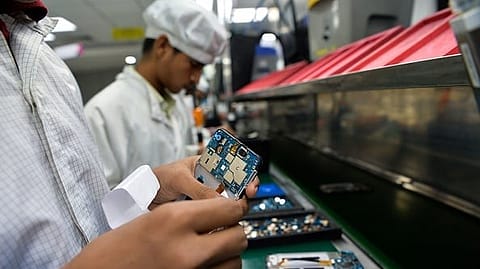Tata Electronics, BEL partner to develop indigenous semiconductor and advanced electronics solutions
The Tata-BEL MoU paves the way for indigenous semiconductor and electronics manufacturing, supporting India’s push for self-reliance and supply chain resilience in critical technology infrastructure.

In a major boost to India’s electronics and semiconductor self-sufficiency ambitions, Tata Electronics has signed a Memorandum of Understanding (MoU) with Bharat Electronics Limited (BEL) to jointly explore indigenous solutions for semiconductors and advanced electronics systems. The MoU was formalised at Bombay House in Mumbai on June 5, 2025, by Dr. Randhir Thakur, CEO & MD of Tata Electronics, and Manoj Jain, CMD of BEL.
The collaboration underscores the evolving synergy between India’s private and public sector tech champions, aimed at localising semiconductor fabrication, assembly, and design for defence and non-defence applications. This includes products like microcontrollers (MCUs), systems-on-chip (SoCs), monolithic microwave integrated circuits (MMICs), and processors.
“This strategic partnership represents a shared vision for advancing India’s domestic electronics value chain and achieving critical scale in semiconductor technologies,” said Dr. Randhir Thakur of Tata Electronics.
The agreement will see both companies explore semiconductor fabrication (Fab), outsourced semiconductor assembly and test (OSAT), and design services that address BEL’s evolving needs. The partnership aligns closely with India’s Make in India and Atmanirbhar Bharat missions and comes amid increased global scrutiny over tech supply chains.
Tata Electronics, which entered the semiconductor ecosystem in 2020 as a greenfield venture, has quickly scaled to become one of India’s most promising players in EMS, chip assembly, and design. With a 65,000-strong workforce across Gujarat, Tamil Nadu, Assam, and Karnataka, it is building India’s first complete value chain for trusted electronics.
BEL, a Navratna PSU under the Ministry of Defence, is a leader in indigenous design and manufacturing of strategic electronics, ranging from radars and weapon systems to AI-driven command and control platforms. The company has been expanding into non-defence areas such as homeland security, cybersecurity, unmanned systems, and healthcare electronics.
Through this MoU, Tata and BEL aim to co-develop scalable, cost-effective solutions, leveraging mutual expertise and infrastructure. The alliance is expected to drive next-generation innovation in electronics, while also creating employment, enhancing skill development, and reinforcing India’s role as a reliable tech partner on the global stage.
